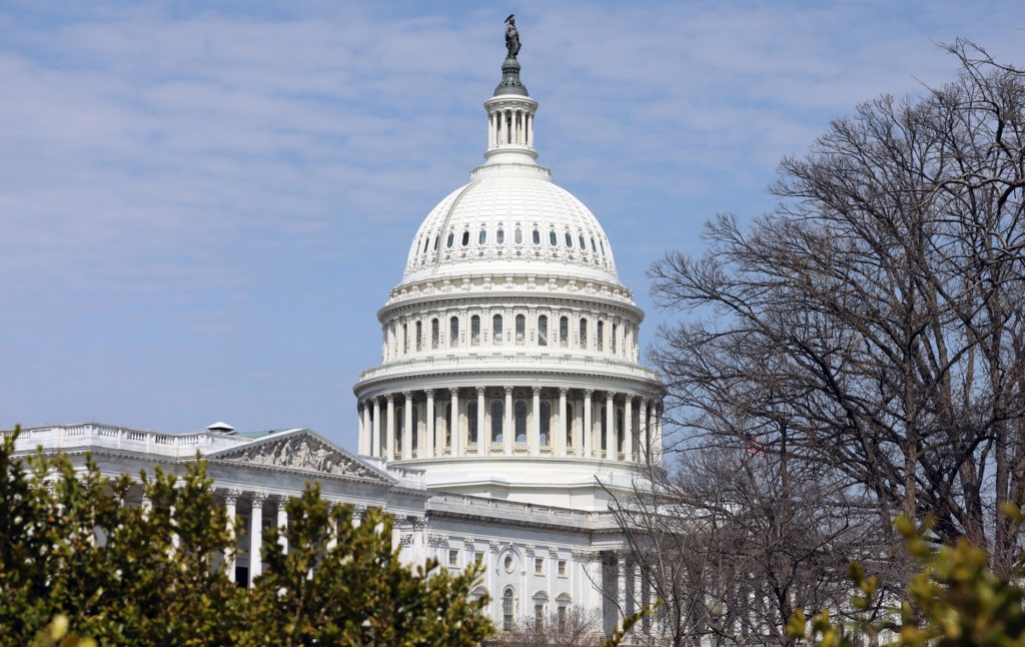ALEXANDRIA, La. – Recent polls indicate that a majority of Americans now support recognition of homosexual marriage.
In 2013 eight national polls have been conducted on the subject. The average of these surveys, according to PollingReport.com, indicates a 51 percent support for same-sex marriage.
A Pew Research Center poll, conducted in January 2010, found that only 38 percent of Americans were in support of homosexual marriage. A more recent Pew poll, released on March 29 of this year, revealed that 49 percent now support same-sex nuptials.
No matter what poll you examine, it is clear that support for homosexuality in general, and same-sex marriage in specific, has increased dramatically in recent years. The question is: why?
Another Pew poll, reported on March 20, sought to discover the reasons for the expeditious rise in support for homosexual marriage. Of those surveyed who had changed their mind in favor of same-sex marriage, 32 percent said they knew someone who was homosexual. Twenty-five percent had changed their mind because they said they had become more open over time. Another 18 percent indicated they had switched their position because homosexuality was more prevalent and same-sex marriage was inevitable.
No one knows for certain why there has been a surge in support of homosexual marriage of late. However, according to Pew’s research, the meteoric rise in support of homosexual marriage could well be based on feelings, perception and even societal pressure.
Whatever people are basing their support for same-sex marriage upon, it is not rooted in fact.
For years, some advocates of homosexuality insisted that 10 percent of society engaged in homosexual behavior. The figure came from research conducted by Alfred Kinsey in the 1940s. In spite of the fact that Kinsey’s findings have been debated, disputed and debunked, homosexual activists have continued to spout the 10 percent figure.
A 2011 Gallup poll found that “U.S. adults, on average, estimate that 25 percent of Americans are gay or lesbian.” Among young adults ages 18-26 the estimate jumps to 29.9 percent.
What is the actual percentage of people who identify themselves as “gay” or “lesbian”?
According to a Centers for Disease Control and Prevention report, the percentage of men identifying as homosexual is 1.7; the percentage of women who identify as lesbian is 1.1 percent.
Another factor that has aided the acceptance of homosexual behavior and same-sex marriage is the belief that homosexuality is innate.
In July 2006, a Pew report indicated that 49 percent of Americans believed homosexuality could not be changed. Yet while there have been scientific studies that have suggested homosexuality could possibility be determined by genetics or biology, none thus far have been conclusive or definitive.
For instance, in 1991 it was widely reported that Simon LeVay, a scientist from Calif., had found a biological cause for homosexuality by comparing the brains of deceased homosexual men with those of deceased straight men.
LeVay’s research did not quite yield what was reported. As a result, in 2001, the scientist was quoted in The Salt Lake Tribune as saying: “It’s important to stress what I did not find. I did not prove that homosexuality is genetic, or find a genetic cause for being gay. I did not show that gay men are born that way, the most common mistake people make in interpreting my work. Nor did I locate a gay center in the brain.”
In 1995, Charles Mann, an American journalist and author who specializes in scientific topics, wrote in Science – the academic journal of the American Association for the Advancement of Science – that “time and time again, scientists have claimed that particular genes or chromosomal regions are associated with behavioral traits, only to withdraw their findings when they were not replicated.”
The most comprehensive study of genetics was completed on April 14, 2003, when the International Human Genome Project announced the successful completion of the Human Genome Project. Major science journals reported on the incredible advances made in the field of genetics based on the project. But one thing was not found: the so-called “gay-gene.”
The most recent effort to suggest a biological basis for homosexuality was reported in December 2012 in the Quarterly Review of Biology. Researchers in the field of epigenetics conducted a study and reported “there is compelling evidence” that something called “epi-marks” contribute “to both the similarity and dissimilarity of family members, and can therefore feasibly contribute to the observed familial inheritance of homosexuality.”
According to ScienceDaily, epigenetics is the study of “how gene expression is regulated by temporary switches,” called epi-marks.
Some media outlets heralded the epigenetic research with the following headline: “Science: Homosexuality isn’t genetic, but it is biological.”
However, that was not quite the case.
On page 357 of the report the researchers wrote, “Although we cannot provide definitive evidence that homosexuality has a strong epigenetic underpinning, we do think that available evidence is fully consistent with this conclusion.” The researches admitted they made no definitive discovery that homosexuality is determined epigenetically.
To date, as far a science is concerned, a genetic predetermination and/or a biological basis for homosexuality simply do not exist.
Even the American Psychological Association (APA) now acknowledges there is no scientific basis for the assertion that homosexuality has a biological basis.
In 1998 the APA published a brochure titled, “Answers to Your Question for a Better Understanding of Sexual Orientation and Homosexuality.” In the literature was the following quote: “There is considerable recent evidence to suggest that biology, including genetic or inborn hormonal factors, play a significant role in a person’s sexuality.”
Fast-forward to 2008, and the APA now says something very different. The APA now says:
“There is no consensus among scientists about the exact reasons that an individual develops a heterosexual, bisexual, gay, or lesbian orientation. Although much research has examined the possible genetic, hormonal, developmental, social, and cultural influences on sexual orientation, no findings have emerged that permit scientists to conclude that sexual orientation is determined by any particular factor or factors. …”
Many Americans are leaping on the bandwagon of acceptance of homosexual behavior and, thus, support for same-sex marriage. However, they do so based on feelings, perceptions or societal pressure and not on any evidence that homosexuality is determined genetically or biologically.
(EDITOR’S NOTE – Kelly Boggs is a weekly columnist for Baptist Press, director of the Louisiana Baptist Convention’s office of public affairs, and editor of the Baptist Message, newsjournal of the Louisiana Baptist Convention.)


